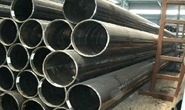Government/Policy

July 30, 2020
Commerce Initiates AD/CVD Investigation on Imports of Seamless Pipe
Written by Sandy Williams
Imports of seamless carbon and alloy steel standard, line and pressure pipe from the Czech Republic, Russia, South Korea and the Ukraine are subject to a new antidumping investigation by the Commerce Department. In addition, a countervailing duty investigation regarding these products has been initiated on imports from Russia and Korea.
The petition was filed by Vallourec Star, LP.
In the Russia and Korea CVD investigations, Commerce will determine whether Russian and Korean producers of subject merchandise are receiving unfair government subsidies. For Russia, Commerce will investigate 11 subsidy programs, including preferential lending, grant programs, and the provision of natural gas for less than adequate remuneration. For Korea, Commerce will investigate 38 subsidy programs, including preferential lending, tax programs, export insurance, grants and electricity subsidies.
The alleged dumping and countervailing rates are:
Initiation Dumping Margins
- Czech Republic 50.45-51.70%
- Russia 41.07-273.47%
- Korea 114.80-131.31%
- Ukraine 42.38-42.88%
Initiation Subsidy Rates
- Russia Above de minimis
- Korea Above de minimis
*de minimis= less than 1% for developed countries, less than 2% for developing countries.
Commerce is expected to make its preliminary determinations for the AD/CVD investigation by Aug. 24, 2020.







